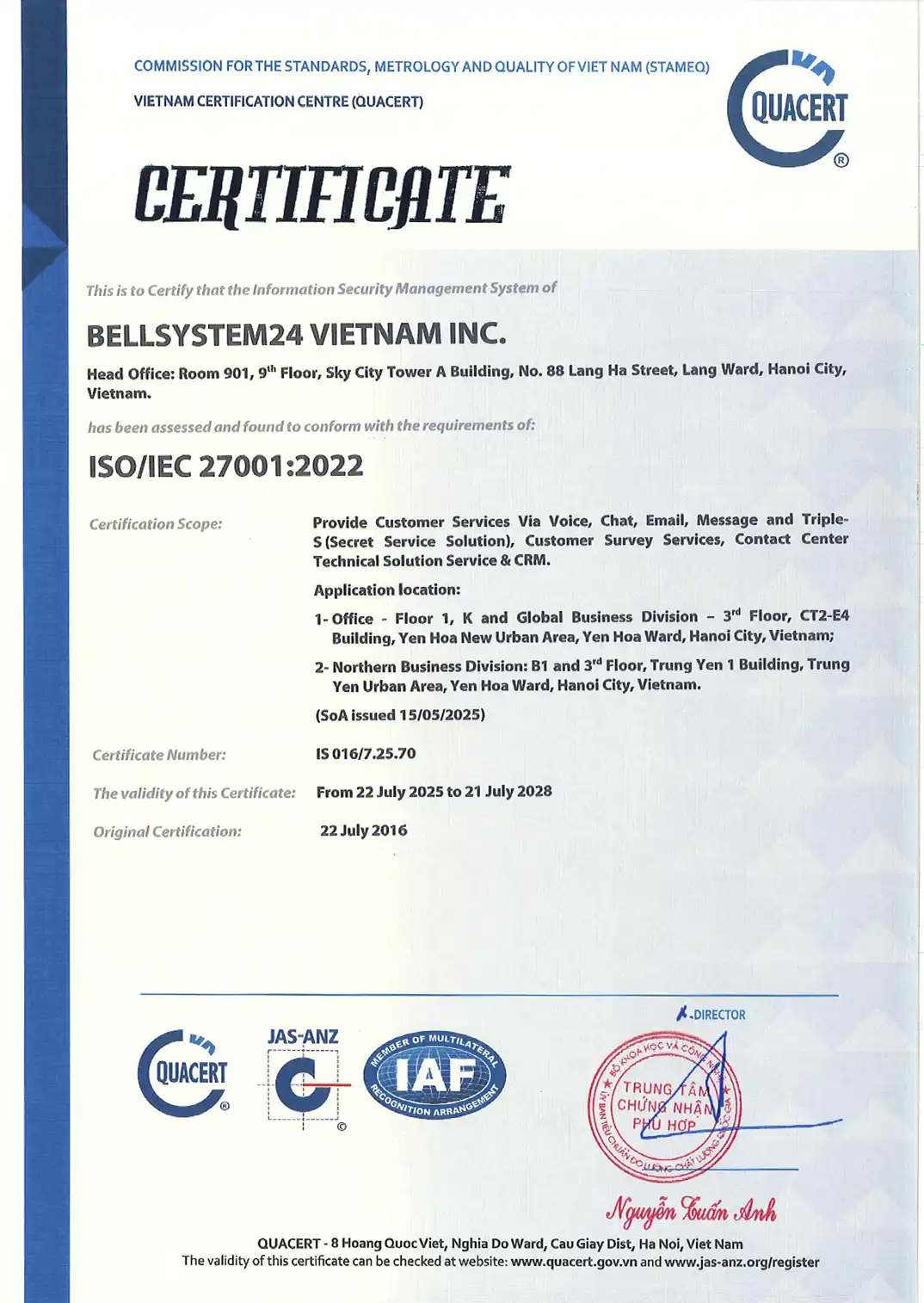In most industries today, the majority of businesses are witnessing increasing competition from many new rivals. New businesses entering the market are proving very astute in choosing methods that appeal to customers' emotions: providing added value (both material and emotional) alongside the existing value of their core products. Customer service is also among these competitive weapons. And balancing the need to enhance customer service quality while keeping costs down is no easy task.
Below are three low-cost yet highly effective ways to retain existing customers that businesses can implement:
1. Establish a dedicated team to investigate customer service
Receiving money from customers but unable to deliver the promised value? Businesses today cannot afford to neglect monitoring the quality of customer service provided by their employees. In this era of rapidly advancing communication technologies, customers can have experiences with a brand anytime, anywhere. This could be on the phone with the sales department, via email to the training department, or in person with the reception department. Therefore, a dedicated team needs to be organized, including representatives from departments that may interact with existing customers. The purpose of this group is to identify issues that cause customers to have a negative impression of the business and to find the root cause.
If the company is not yet equipped to conduct formal survey procedures, request that a shared mailbox be set up for the dedicated team, then ask all employees in the company to send customer complaints to this shared mailbox.
On average, approximately 26% dissatisfied customers will not say anything but quietly leave the company. To begin changing the way existing customers are cared for in a positive direction, businesses need to know the underlying factors that may cause customers to be disappointed with their customer service.
2. Have a method to remind employees of the importance of customer service
Regularly remind employees of the importance of customer service This is extremely important, yet most companies today are not doing it correctly. In most cases, businesses will only mention things related to their mission, vision, standards of conduct with customers, etc. during the first few training sessions for new employees. This is all necessary information, and it needs to be repeated many times throughout the course of employment.
Start by establishing a system that rewards actions demonstrating exceptional customer service that exceed the company's established standards, in order to capture the first outstanding examples of unique approaches that deliver superior customer satisfaction. Next, the company simply needs to document the stories of these exemplary role models and send them to the internal email system along with a message reminding employees of the common standards for customer service.
Additionally, some businesses have also succeeded by creatively developing radio programs, video publications, or internal e-magazines that skillfully weave in messages about how crucial excellent customer service is to a business's survival.
3. Reward outstanding individuals both materially and spiritually
A common problem in Asian companies is that employees are often not praised enough and are usually focused on their shortcomings. Furthermore, even when they are praised, they have to wait for regular intervals, usually after 6 months or a year, which is too long. To avoid inadvertently causing employee enthusiasm to gradually diminish over time, managers need to change their mindset and understand their employees better than before.
In addition to adjusting the frequency of material rewards to encourage employees, businesses can regularly collect positive feedback on how employees care for existing customers and send it to them via email as a form of direct moral support. In addition, public encouragement and praise from managers is also an extremely effective morale booster. The principle here is very simple: if managers want employees to take good care of existing customers, they should learn to thank them every time they do so.
When a business has systematically incorporated management factors and incentives for employees, both material and spiritual, into its customer service quality improvement activities, the customer service provided by all company employees will undoubtedly undergo noticeable changes. Perhaps the impression that people who have not yet used the company's products or services have of its customer care will convince them to try it someday?







